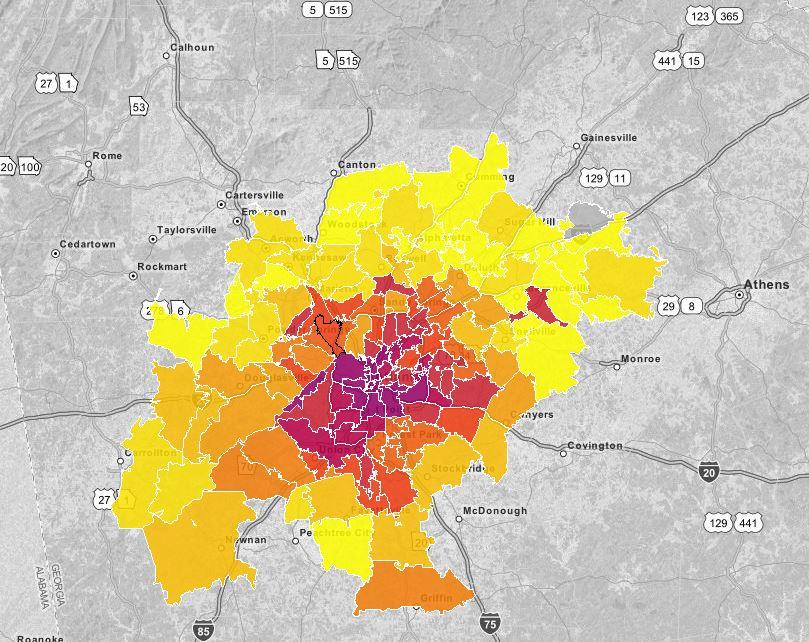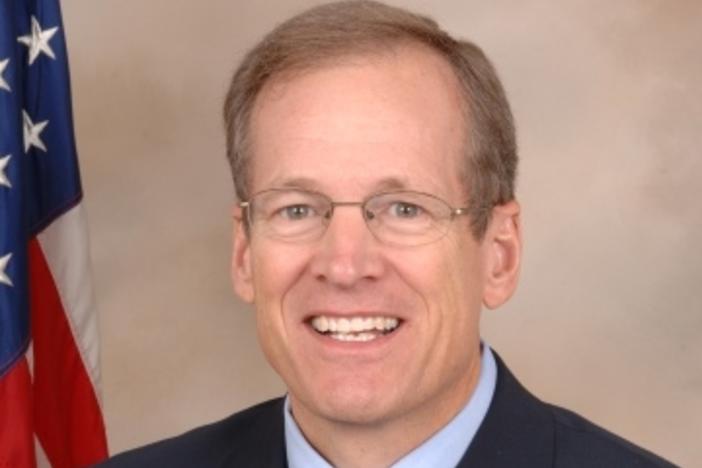
Section Branding
Header Content
Two Way Street: In Atlanta's Core, The AIDS Epidemic Is Skyrocketing
Primary Content

The 1993 film Philadelphia starred actor Tom Hanks as a young lawyer dying of AIDS.
Although the AIDS epidemic had started some 10 years earlier, the film was the first Hollywood feature to show the devastating toll that the disease was taking in gay communities around the country in excruciating detail.
Today, thanks to new medications, HIV infections and AIDS are no longer the death sentence they once were. That may be the reason AIDS has fallen out of the media spotlight. But that doesn’t mean the virus has gone away.
In Atlanta, HIV infection in some neighborhoods is skyrocketing, nearing the same level as some African nations.
Dr. Patrick Sullivan, an epidemiologist at Emory University, has been one of the leaders in gathering data revealing the widespread rates of HIV infection both in Atlanta and around the country.
Partnering with the state health department, Emory University created AIDS Vu: interactive online maps that illustrate the prevalence, or percentage of people in a geographic area, of living with HIV in the United States. The project breaks down the data by zip code and demographic.
(Photo Credit: AIDS Vu)
“There are more than a handful of ZIP codes in the Atlanta metro area where that HIV prevalence is three to five percent or even over five percent,” said Sullivan. “And just by comparison, that prevalence in those communities is higher than the national prevalence in many African countries.”
That data, Sullivan says, can go hand in hand with area poverty levels and lack of access to health insurance.
Those areas include zip codes in Midtown and the west and southwest sides of the city.
“And I think it just speaks to how we need to adjust our own understanding of our local epidemics and put that in a global context,” said Sullivan. “People, I think, still talk about HIV infection and AIDS as this major problem impacting African economies and development. And guess what? Those same epidemic levels are right here within our city.”
Alicia Philipp is the president of The Community Foundation of Greater Atlanta, one of the largest philanthropic non-profits in the city. Phillip has been a leader at the foundation since the very beginning of the AIDS epidemic in the 1980s. She says there are a few reasons AIDS and HIV have widely disappeared from American media coverage.
“For many people, it’s become a chronic disease that is manageable with medication. And so, people are living-- they’re not dying. And it’s not the big issue it used to be in the ‘80s and early ‘90s.”
She says another factor contributing to lack of coverage is demographic.
“And I think, unfortunately where the disease is most rampant now-- among African Americans and men who have sex with men, and young people are living in poor neighborhoods-- these weren’t popular people anyway,” said Phillips. “And I know that’s a terrible thing to say and it sounds so blunt. But these are people who fall off out of the radar screen anyway.”
So how can entire communities infected with HIV just “fall off the radar”?
Neena Smith-Bankhead is the Vice President of Research and Education at AID Atlanta, a support organization for people living with HIV and AIDS in the metro Atlanta area. She says the disconnect stems from a stigma of the AIDS epidemic and how it relates to sexuality, especially in faith based communities.
“One of the things I think we constantly see are populations that are heavily impacted with HIV afraid to have the conversation. Afraid to ask the questions, because there’s also a fear that if I ask the questions, I must be engaging in something that is not acceptable or already is a stigmatized behavior.”
Guests:
Dr. Patrick Sullivan: epidemiologist at Emory University who has been one of the leaders in gathering data revealing the widespread rates of HIV infection in Atlanta and around the country.
Nina Smith Bankhead: Vice President of Research and Education at AID Atlanta
Alicia Philipp: President of the Community Foundation of Greater Atlanta





